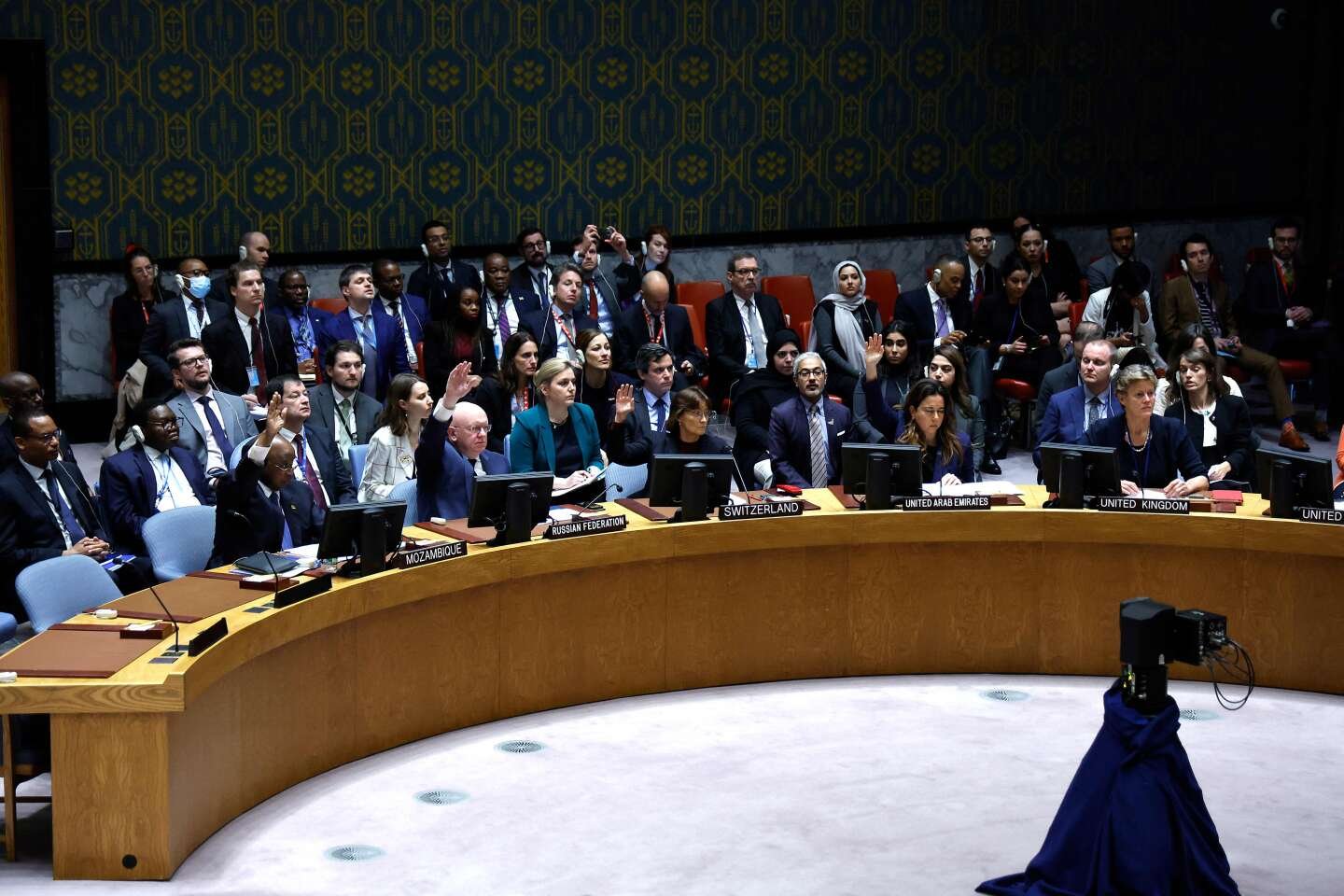Security Council at United Nations headquarters in New York, October 18, 2023.
On October 18, the United States blocked the United Nations Security Council from adopting a resolution on the conflict between Hamas and Israel. A decision that American President Joe Biden has made is part of the continuity of America’s historic position in the United Nations (UN) of almost unwavering support for the Jewish state.
What did this decision foresee?
TextCondemned both attacks carried by Brazil “disgusting” Hamas and “violence against civilians” Action carried out by the Israeli army in Gaza. offered “humane breaks” To ensure that aid is delivered to the residents of the region. But in the end the Americans vetoedstating that it was not specified, “Israel’s right to self-defense” and they signal their willingness to do good “field diplomacy”During their president’s visit to Tel Aviv.
“It’s a missed opportunity for the council because it was a good text.”He lamented France’s UN representative, Nicolas de Rivière, who voted in favor of the resolution. “This draft resolution was not at all dangerous for Israel: it simply wanted a humanitarian corridor without condemning Israel’s colonization.”Joan Deas, director of the Mediterranean Institute for Middle East Research and Studies (Iremmo), considers herself an expert on the Palestinian issue. Two days ago, another decision was taken by Russia. “truce” The offer in Gaza was rejected not only by the United States, but also by France and the United Kingdom, especially because it did not condemn the Hamas attack.
How can the USA block this decision?
A text in the Security Council must collect acceptance of ratification by at least nine of the fifteen member states. Each country has one vote, which it can use to approve, reject or abstain from the proposed text.
However, the five permanent members of the Council (France, the United States, the United Kingdom, Russia and China) each have a veto power, allowing them to block the adoption of the text. This is what allowed the United States to block the October 18 decision.
Is this attitude of America new?
Americans have not always blocked resolutions critical of Israel. For example, they voted for resolution 242, which called for the withdrawal of the Israeli army after the Six-Day War (1967), or resolution 338, which called for a ceasefire after the outbreak of the Yom Kippur War (1973).
The first major American veto was passed on this issue September 10, 1972When the United States refused to condemn Israel’s reprisals against Palestine Liberation Organization activists following an attack by Palestinian Black September commandos on Israeli athletes during the Munich Olympic Games.
Since then the United States forty three times They use their veto power to prevent decisions critical of Israel from being taken, going it alone every time, even within the Western camp. This shows, according to Joan Deas: “The United States always prefers bilateral diplomacy with Israel over multilateral and international negotiations.”
Still, America’s attitude experienced short-lived changes. Although the United States has long refused to approve a resolution criticizing the Israeli government, it has abstained many times. The latest event dates back to the end of Barack Obama’s term: on December 23, 2016, the Democratic president’s abstention allowed the passage of the new law. resolution 2334He condemned Israel’s colonialism in the West Bank. This is the last text adopted by the Security Council to date on the Israeli-Palestinian conflict.
In fact, with Donald Trump coming to the White House, the USA renewed its unwavering support for Israel by vetoing two resolutions criticizing the Israeli government’s policy. 2017 And 2018. Joe Biden continued the same policy by opposing the October 18 decision.
Beyond the United States, China and Russia have also used their blocking powers within the Security Council by opposing various American-origin resolutions on the Palestinian issue. On October 25, Beijing and Moscow vetoed A text defended by the USAHe called for humanitarian pauses while recognizing Israel’s right to defend itself against Hamas.


